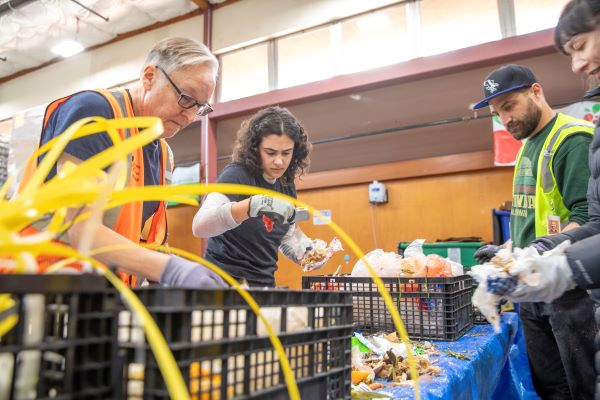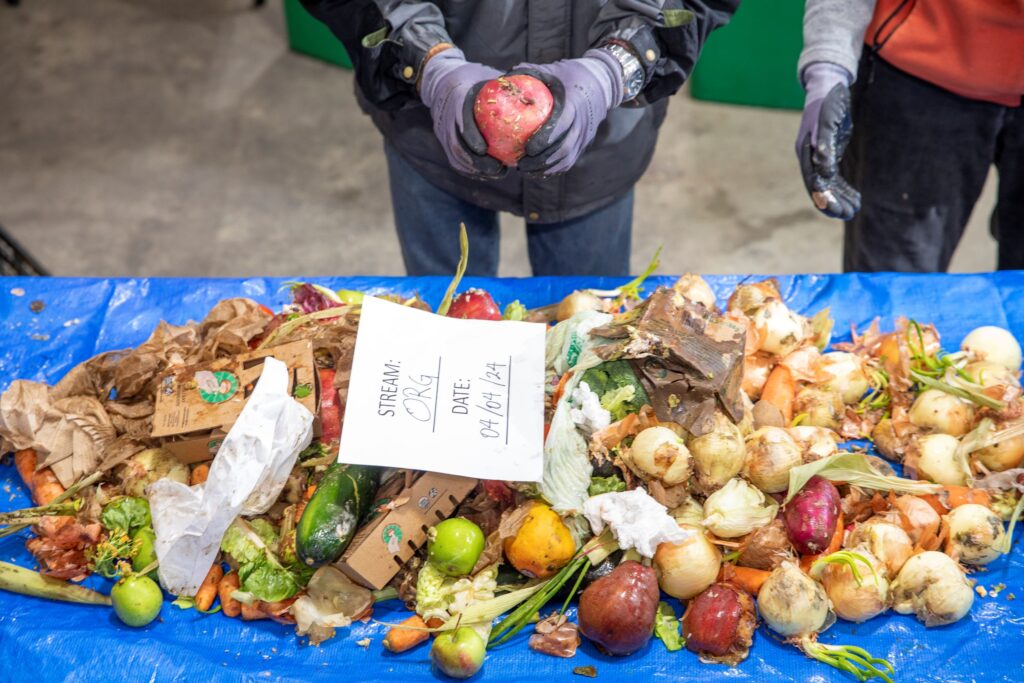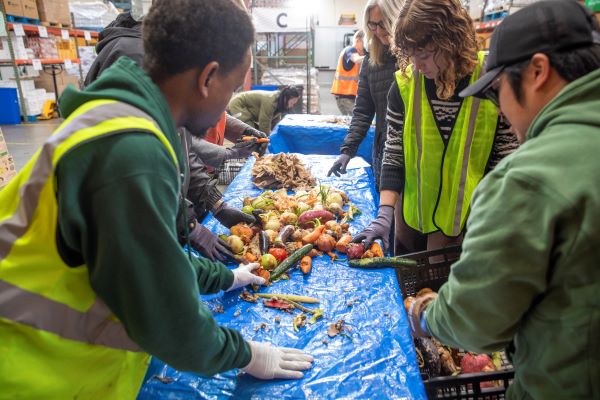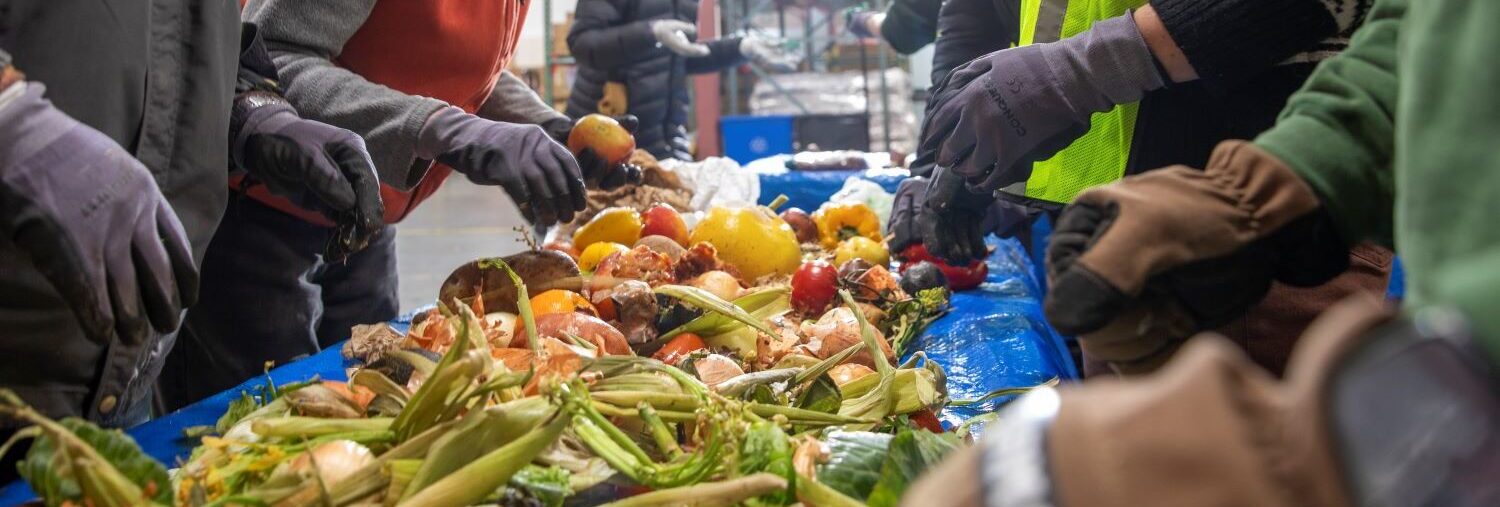Berkeley Food Network is the largest Food Recovery Organization (FRO) in Northern Alameda County, recovering nearly 400,000 pounds of edible surplus food from local businesses each year. So when our long-time funder StopWaste, an Alameda County government organization supporting city entities, businesses, and individuals with waste reduction, tapped us to be the first site for a waste analysis pilot project, we were thrilled to participate!
Implemented by Cascadia Consulting Group, an organization providing early research and decision-making for climate action initiatives including waste reduction and diversion, the analysis aimed to get a picture of the waste that travels downstream to FROs like Berkeley Food Network to understand the ratio of recoverable food to waste in donations received. StopWaste will leverage the data uncovered at BFN and other FROs to advocate for more support and resources for food recovery efforts in our community.
Unsurprisingly, sorting through decaying food was a little messy–and smelly! Alongside Cascadia and StopWaste, BFN staff and volunteers sorted waste from three main common waste categories–compost, landfill, and recycling–into 14 more specific categories to better understand the type of items present in our waste. The team took pictures of the samples and weighed each category for visual and quantitative records.
The results? The ratio of food to waste at BFN is high! Over the last 18 months, we’ve refined our procurement standards and deepened commitments with partners to ensure the majority (about 80%) of recovered food coming to us is edible and safe for distribution. BFN pays to dispose of the remaining 20% we deem as waste or unfit for distribution. Our high standards ensure we can maintain dignity in our services, expand access to seasonal produce for our community, and mitigate our costs associated with executing this important climate action work.

Food recovery, which diverts edible surplus food to food-insecure communities, is an important initiative that simultaneously tackles climate change and food insecurity. Yet, FROs can easily become inadvertent targets of “donation dumping”, passing the brunt of sorting and waste hauling for unusable food on to these often resource-strapped nonprofits.
California Senate Bill 1383 requires that by 2025, 20% of edible food that would otherwise go to landfills be recovered and diverted to feed people in need. As this deadline approaches, more food producers will be required to sync up with FROs like BFN to recover their surplus food. As the flow of recovered food grows, inevitably so will the amount of unusable food and packaging trash, passing the expenses of additional sorting and waste disposal onto the organizations charged with feeding the community in need.
By conducting waste audits at organizations like BFN, StopWaste will be able to advocate for more funding and institutional support for FROs. We were excited to be able to be the first test site to help provide insight into how we can ensure food recovery can be a sustainable and effective effort in our community.
Help BFN offer healthy food to our community while supporting a sustainable food system.
Become a food recovery volunteer or make a gift in support of our food recovery program.


